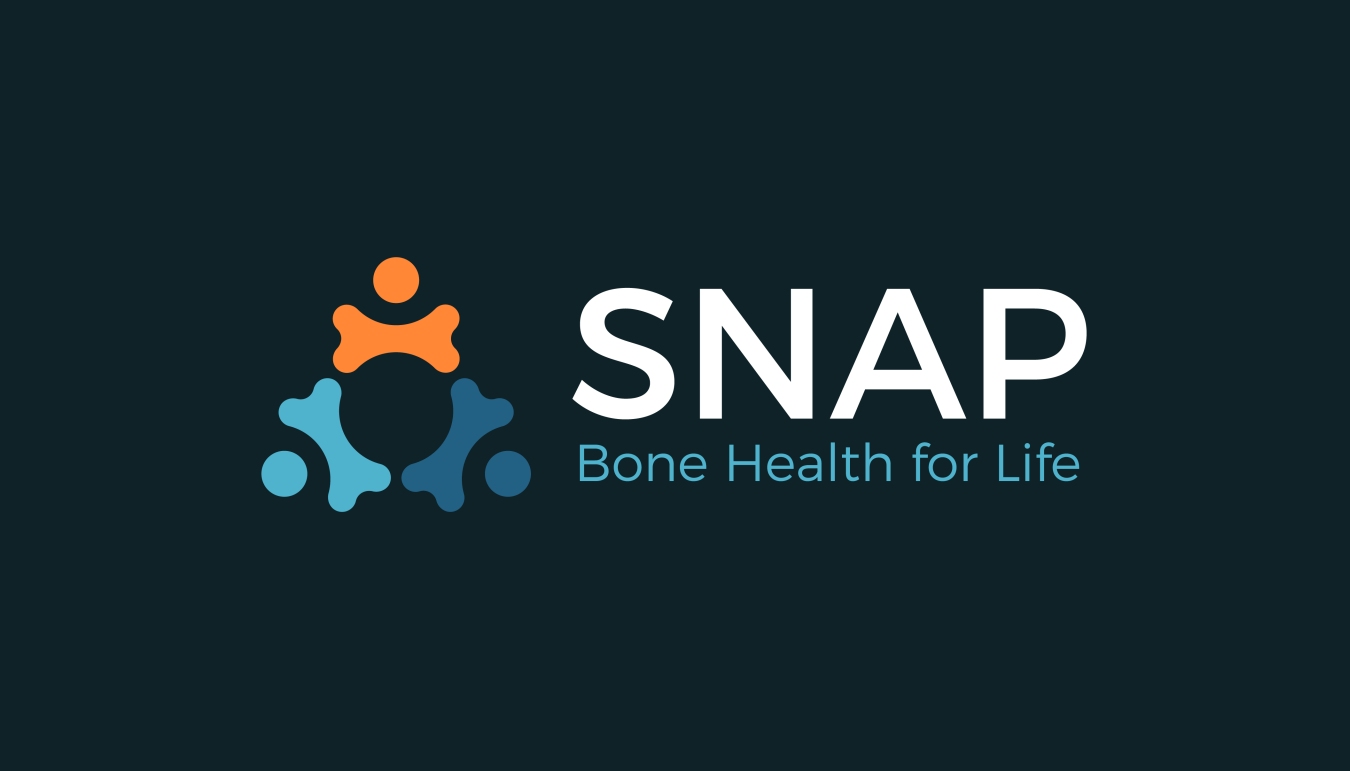
The complex connection between the body and mind
The complex connection between the body and mind is a topic of growing interest in the field of health and wellness, with discoveries being made every day. While the adverse effects of stress on mental health are well understood, the lesser-known fact is that stress can significantly impact physical health as well and bone health is no exception. It has particularly been linked to osteoporosis, a common bone condition affecting over 200 million people worldwide.1
One of the factors that can tip this balance is stress, whether short-lived or persistent.
While stress may be inevitable living in the modern world, knowing how it impacts bone health and how to strengthen this important base can pave the way for stronger and healthier bones.
Stress and Bone Physiology
Our bones are dynamic structures that constantly renew themselves. Osteoblasts, the immature cells that further develop and eventually build bone, and osteoclasts, the cells that specialize in bone destruction, are responsible for this remodelling. Osteoporosis occurs when this balance breaks down, leading to fragile bones and increased fracture risk.2
One of the factors that can tip this balance is stress, whether short-lived or persistent. Stress activates a series of physiological responses, including the release of stress hormones such as cortisol and adrenaline, that can adversely affect bone health by a number of mechanisms.
Effects of Cortisol:
- Bone Resorption: Chronic elevation of cortisol, often due to prolonged stress, can lead to increased bone resorption by supporting osteoclast dominance. This means that bones break down faster than they can rebuild, leading to decreased bone density and increased fracture risk.3
- Inhibition of Bone Formation: Cortisol can inhibit the activity of osteoblasts, the cells responsible for bone formation. This inhibition can impair the bone's ability to repair and rebuild itself.4
- Calcium Loss: Cortisol promotes calcium loss from bones, leading to weakened bones over time. Bones store calcium, and when calcium is continually removed from the bone to support other bodily functions due to stress, it weakens bones. In addition, elevated cortisol levels can reduce the absorption of dietary calcium from the intestines and the reabsorption of filtered calcium through the kidneys.5
Effects of Adrenaline:
- Long-Term Impact: Chronically elevated adrenaline levels due to stress can lead to unhealthy coping mechanisms and poor lifestyle choices, such as an unbalanced diet, a sedentary lifestyle, and disrupted sleep. These factors can indirectly impact bone health over time.6
All these factors lead to weakened bones and an increased risk of osteoporosis.
The Effects of Stress-Related Inflammation
Another participant in the relationship between the mind and the bones is inflammation. Chronic or acute stress causes inflammation, which is a normal reaction to injury or illness but becomes problematic if it lasts longer than it should, adversely affecting bone health.
Low-grade inflammation can be caused by ongoing stress. Stress causes certain inflammatory chemicals called cytokines (interleukin-6 and tumour necrosis factor-alpha) to surface and attack bone cells directly. This assault suppresses bone growth while increasing bone resorption. Bones that are more prone to fracture as a consequence are brittle.7
Lifestyle Decisions in Response to Stress
Stress does not exist in isolation; it causes changes in lifestyle that endanger bone health even more. Chronic stress often fosters bad behaviours like smoking, binge drinking, and eating poorly, amplifying its negative effects.
Bone density is particularly harmed by smoking. It interferes with the absorption of calcium and lowers estrogen levels in women, which are essential for bone health.8 This impact is further amplified by excessive alcohol use, which increases the risk of fractures and bone loss.9
Stress also interferes with sleep cycles, depriving the body of its nocturnal bone development and repair cycles. Since it causes the production of growth hormones that build bones while we sleep, good sleep is the foundation for bone health.10
Lifestyle Choices to Preserve Bone Health
Lifestyle modifications in response to stress can help preserve bone health.
- Stress Management: Use stress management techniques such as deep breathing, yoga, mindfulness, and muscle relaxation. Take part in activities that you find enjoyable and relaxing.
- Physical Activities: Weight-bearing exercises such as walking, jogging/running, dancing, hiking and more can fortify bones while alleviating stress and inflammation.11
- Nutrition: Embrace a diet rich in calcium and vitamin D that includes dairy, leafy greens, fortified foods, and fatty fish. Cut back on caffeine and salt to preserve calcium.
- Restful Sleep: Prioritize sleep hygiene, aiming for 7-9 hours of uninterrupted rest. A consistent sleep schedule fosters nighttime bone rejuvenation.12
- Quit Harmful Habits: Quit smoking and limit alcohol to moderate levels for the well-being of your bones and overall health.13
Conclusion
The significant effect that stress has on our skeletal strength is shown by the mind-bone relationship. Chronic stress weakens bones and increases the risk of fractures via hormone disruption, inflammation, and lifestyle decisions. For overall well-being, it is crucial to understand the relevance of stress management and adopt bone-friendly activities.
You may protect and strengthen your bones by implementing stress-relieving strategies, embracing physical exercise, feeding your bones via nutrition, putting sleep first, and quitting bad behaviours. Keeping your bones healthy is a lifetime commitment. The decisions taken today will strengthen a sturdy skeleton structure for the next years. Nurture your mind to fortify your bones-it's a connection worth cherishing.
References
1. Sözen, T., Özışık, L., & Başaran, N. Ç. (2017). An overview and management of osteoporosis. European Journal of Rheumatology, 4(1), 46.
2. Hadjidakis, D. J., & Androulakis, I. I. (2006). Bone remodelling. Annals of the New York Academy of Sciences, 1092(1), 385-396.
3. Ng, J. S., & Chin, K. Y. (2021). Potential mechanisms linking psychological stress to bone health. International Journal of Medical Sciences, 18(3), 604.
4. Chyun, Y. S., Kream, B. E., & Raisz, L. G. (1984). Cortisol decreases bone formation by inhibiting periosteal cell proliferation. Endocrinology, 114(2), 477-480.
5. Dennison, E., Hindmarsh, P., Fall, C., Kellingray, S., Barker, D., Phillips, D., & Cooper, C. (1999). Profiles of endogenous circulating cortisol and bone mineral density in healthy elderly men. The Journal of Clinical Endocrinology & Metabolism, 84(9), 3058-3063.
6. Lane, N. E., & Lukert, B. (1998). The science and therapy of glucocorticoid-induced bone loss. Endocrinology and Metabolism Clinics of North America, 27(2), 465-483.
7. Epsley, S., Tadros, S., Farid, A., Kargilis, D., Mehta, S., & Rajapakse, C. S. (2021). The effect of inflammation on bone. Frontiers in Physiology, 11, 1695.
8. Yoon, V., Maalouf, N. M., & Sakhaee, K. (2012). The effects of smoking on bone metabolism. Osteoporosis International, 23, 2081-2092.
9. Milena, F., Francesca, S., Francesca, V., Paola, T., Andrea, N., Stefano, B., ... & Gianluca, G. (2012). Role of obesity, alcohol and smoking on bone health. Frontiers in Bioscience, 4, 2586-2606.
10. Swanson, C. M., Kohrt, W. M., Buxton, O. M., Everson, C. A., Wright Jr, K. P., Orwoll, E. S., & Shea, S. A. (2018). The importance of the circadian system & sleep for bone health. Metabolism, 84, 28-43.
11. Kohrt, W. M., Bloomfield, S. A., Little, K. D., Nelson, M. E., & Yingling, V. R. (2004). Physical activity and bone health. Medicine & Science in Sports & Exercise, 36(11), 1985-1996.
12. Ibid. (Same as above)
13. Ibid. (Same as above)


